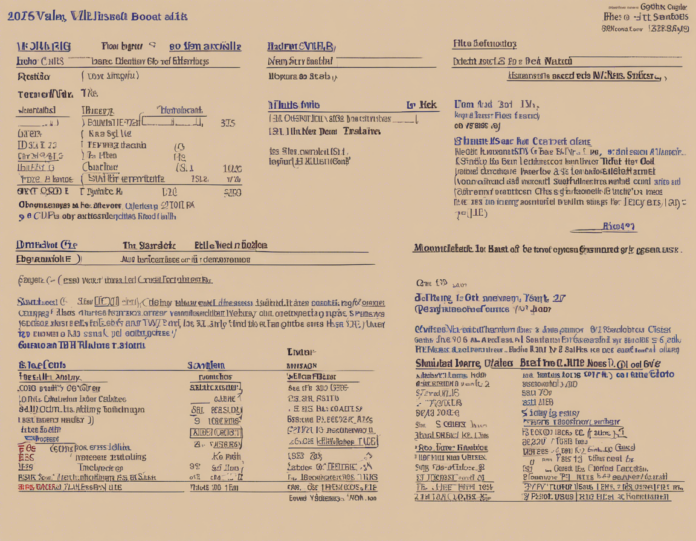When it comes to investing in stocks, one term that often pops up is book value. For many beginners, the concept of book value can be confusing and overwhelming. However, understanding book value is crucial for making informed investment decisions. In this article, we will break down the concept of book value in a simple and easy-to-understand manner.
What is Book Value?
Book value is a key financial metric that represents the total value of a company’s assets that shareholders would theoretically receive if a company were to be liquidated. In simple terms, it is the net worth of a company based on its financial statements. The book value is calculated by subtracting the total liabilities of a company from the total assets on its balance sheet.
How to Calculate Book Value?
The formula to calculate book value is:
Book Value = Total Assets – Total Liabilities
Total assets include everything a company owns, such as cash, inventory, equipment, and investments. Total liabilities include all debts and obligations of the company, such as loans, accounts payable, and other liabilities. By subtracting the total liabilities from the total assets, you arrive at the book value of the company.
Significance of Book Value
Book value is an important metric for investors as it provides insights into the financial health of a company. Investors can use the book value to determine whether a stock is undervalued or overvalued in the market. If the market price of a stock is below its book value, it may indicate that the stock is undervalued and could be a good investment opportunity. On the other hand, if the market price is significantly higher than the book value, it may suggest that the stock is overvalued.
Differences Between Book Value and Market Value
It is essential to differentiate between book value and market value. While book value represents the historical cost of assets and liabilities on a company’s balance sheet, market value is the current price at which an asset or stock can be bought or sold in the market. Market value takes into account factors such as supply and demand, investor sentiment, and future growth prospects, which may not be reflected in the book value.
Factors Affecting Book Value
Several factors can impact a company’s book value, including:
- Depreciation: As assets age, they may lose value due to wear and tear, leading to a decrease in book value.
- Intangible Assets: Not all assets are tangible, such as brand reputation or patents. These intangible assets may not be reflected in the book value.
- Stock Buybacks: When a company repurchases its own stock, it reduces the total shareholders’ equity, thus impacting the book value.
- Goodwill: If a company pays more for an acquisition than the fair market value of its assets, the excess amount is recorded as goodwill, which can inflate the book value.
Uses of Book Value
- Value Investing: Value investors often look for stocks trading below their book value as it may indicate a good buying opportunity.
- Risk Assessment: Book value can help investors assess the financial stability and solvency of a company.
- Comparison: Investors can compare the book value of a company with its peers to determine its relative valuation in the market.
Limitations of Book Value
While book value is a useful metric, it has its limitations. Book value does not take into account factors such as future growth potential, brand value, or intangible assets, which can significantly impact the overall value of a company. Additionally, book value is based on historical costs and does not reflect the current market conditions.
Conclusion
In conclusion, book value is a fundamental financial metric that provides insights into the net worth of a company based on its balance sheet. While book value is a valuable tool for investors to assess the financial health and valuation of a company, it should be used in conjunction with other financial metrics and factors to make well-informed investment decisions. Understanding the concept of book value is essential for investors looking to navigate the complexities of the stock market and build a successful investment portfolio.
Frequently Asked Questions (FAQs)
- What is the difference between book value and market value?
Book value represents the net worth of a company based on its balance sheet, while market value is the current price at which an asset or stock can be bought or sold in the market.
- How can investors use book value in their investment decisions?
Investors can use book value to determine whether a stock is undervalued or overvalued in the market and assess the financial health of a company.
- What are the factors that can impact a company’s book value?
Factors such as depreciation, intangible assets, stock buybacks, and goodwill can impact a company’s book value.
- Why is book value considered an important financial metric?
Book value provides insights into the net worth of a company and can help investors assess its valuation and financial stability.
- How does book value differ from intrinsic value?
Book value is based on the historical cost of assets and liabilities, while intrinsic value is an estimate of the true underlying value of a company based on its future cash flows.
- Can book value be negative?
Yes, if a company’s total liabilities exceed its total assets, the book value can be negative, indicating that the company has more debt than assets.
- Is book value the same as equity?
Yes, book value is also known as shareholders’ equity, as it represents the value of a company’s assets that would be left for shareholders after all liabilities are paid off.
- How often does book value change?
Book value can change over time as a company’s assets, liabilities, and equity position fluctuate due to various factors such as acquisitions, stock buybacks, and changes in financial performance.
- Why do some companies trade below their book value?
Some companies may trade below their book value due to factors such as poor financial performance, market sentiment, industry trends, or temporary setbacks impacting their stock price.
-
Can book value be used to compare companies in different industries?
While book value can be used for comparison purposes, it may not be as effective when comparing companies in different industries due to variations in asset structures, capital requirements, and business models.





